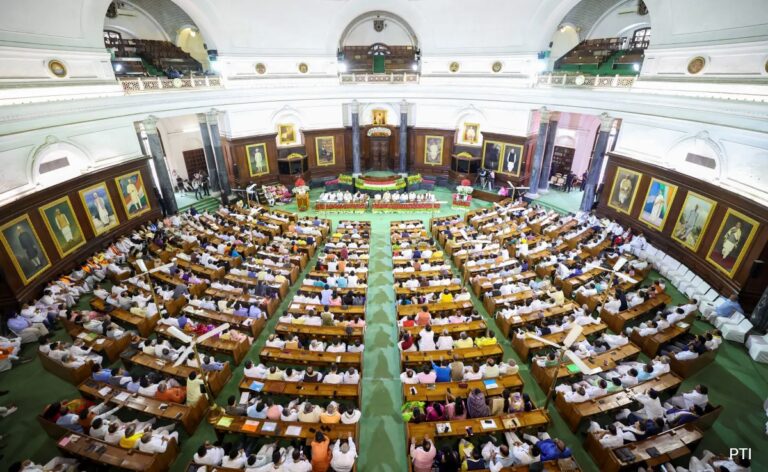The Indian Lok Sabha will soon elect a new Speaker. The election is a closely watched event as the Bharatiya Janata Party (BJP)-led coalition government is in power and just shy of a majority. The Speaker position is a hot topic, especially at a time when the ruling coalition has a slim majority and party divisions are the norm. The Speaker has the crucial role of interpreting the no-defection clause on one hand and presiding over an often acrimonious Parliament on the other.
This time around, there were initial rumours that a non-BJP NDA (National Democratic Alliance) coalition partner was eyeing the Speaker post. These gradually died down as the major non-BJP parties in the coalition accepted that the choice of candidate should be left to the BJP. There are also reports that the ruling party has begun a formal consultation process in this regard.
Importantly, when a party had a clear majority in the House of Representatives, the Speaker was always chosen from the ruling party. When a coalition government was formed, the situation was a bit different.
Ravi Ray to PA Sangma
In 1989, when the V.P. Singh-led National Front government came to power, Ravi Ray of the Janata Dal was made the Speaker. In 1991, when the Congress Party formed a minority government, Shivraj Patil of the Congress Party was made the Speaker. In 1998, when the BJP-led NDA came to power, Balayogi of the Telugu Language Party (TDP) was elected Speaker and was re-elected in 1999. Later, upon his death, the position went to another BJP ally within the NDA, the Shiv Sena, with Manohar Joshi as the Speaker. When the UPA came to power in 2004, Somnath Chatterjee, leader of the Communist Party of India (Marxist), an ally of the party, was made the Speaker. In 2009, during the second UPA government, Meira Kumar of the Congress Party was elected Speaker.
The first two BJP-led NDA governments under Narendra Modi had Sumitra Mahajan and Om Birla in power.
The only time when the Speaker was not from the party or alliance that came to power after the elections was in 1996. This was due to the unique political situation at the time of the election. No party had won a majority in the elections and the President had asked Atal Bihari Vajpayee to form the government. Vajpayee’s government did not have a majority and was reluctant to hold a vote of confidence in the plenary session before bringing the motion of confidence. The election of the Speaker was held first. The opposition parties decided to field PA Sangma for the Speaker’s post. The BJP, in a strategic move, decided not to field a candidate and stated that they supported Sangma. Thus the opposition candidate was elected Speaker unanimously.
What the UK will do
It is important to note that in the UK, the home of parliamentary democracy, it is customary for the person elected as Speaker of the House of Commons to renounce his/her membership of the political party to which he/she belongs. No political party will field a candidate to challenge the Speaker at the next election, and the Speaker will continue in that role until he/she decides to retire. This explains the maxim “Once a Speaker, always a Speaker!” In his famous novel, Best among peersJeffrey Archer plays a character who competes for leadership of the majority party, and when he loses he retires to become Speaker.
In India, the above practice is not followed. Speakers of the Lok Sabha have also become Union Ministers. Gurdial Singh Dhillon, Shivraj Patil and Balram Jakhar are some examples in this regard. N. Sanjiva Reddy resigned as Speaker twice (1969 and 1977) to contest the Presidential elections. He lost the first time and won the second time. It is also notable that four Speakers have lost Lok Sabha elections after completing their term as Speaker. These include Baliram Bhagat (1977), Balram Jakhar (1989), Manohar Joshi (2004) and Meira Kumar (2014).
The next few days will reveal who will be the Speaker of the Lower House, and this time around, the BJP is likely to ensure that its nominee takes over, given its dominance in the NDA.
(Dr Sandeep Shastri is the National Coordinator of the Lokniti Network)
Disclaimer: These are the personal opinions of the author.
Today’s Featured Video
‘We are stronger than ever and the best is yet to come’: Gautam Adani

